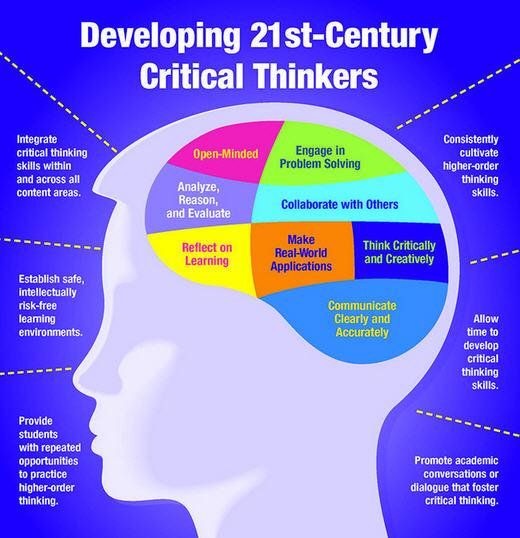How To Improve Critical Thinking Skills
Mar 17, 2019 • 69 views
Critical thinking refers to the act of questioning accepted ideas by seeking evidence and examining all sides of an issue. Critical thinking is required to recognise biased viewpoints and persuasive arguments which influence the reasoning power. Retraining yourself as a critical thinker is possible if you, like an athlete prepares for better performance, pay close attention to technique and specific practice. Critical thinking might be described as the ability to engage in reflective and independent thinking.
People bring prior knowledge to most issues. Critical thinkers add to this knowledge and consider other sides before taking a position. A person exercising critical thinking skills looks at the issue, considers the problem from various angles evidence from all sides, takes action and looks back to consider the outcome. For instance, a coal mining company may claim that solar energy is too costly and such technology may be ineffective in a particular geographical area. Before accepting this statement, it is important to question it. Some of the critical questions to ask could be - Who is promoting the company?, 'Do their competitors also feel the same way? Additional information regarding financial and environment-related considerations should be collated. Only after a deliberate consideration of each of the above questions would it be possible to form an opinion. In other words, before jumping to conclusions, we must consider the available evidence in a systematic manner.
To think critically, we must first recognise bias. Bias means favouring one position over another. Bias
could become an obstruct while considering the different ways to approach an issue. For instance, it may be easy to assume that solar energy is a low-cost power source, but the critical thinker would delve deeper to determine if that is indeed the case.

The best way to develop critical thinking skills is by examining an issue through questions. By probing deeply with questions before reaching a conclusion, we can increase our receptiveness to deeper reasoning without judgment or bias.
We must interpret information from different sources and let go of our prior assumptions. Critical thinkers 'try on' varying solutions by playing out the results to hypothetical conclusions For this, we must reframe the revised perspectives as clearly and specifically as possible and pose questions without requiring immediate answers. With the discipline to reserve judgment and to consider many aspects of the issue at hand, you can develop a clearer and more informed way of viewing the world as a critical thinker.
